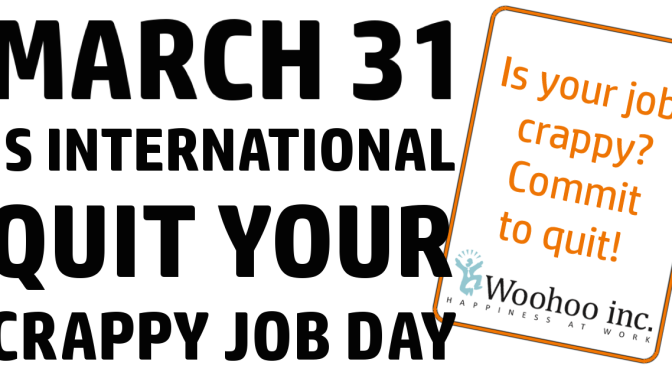Ever seen one of these little “inspirational” images on facebook or linkedin? They’re are all over the damn place :)
Not only is this kind of advice vapid and simplistic (and frankly it annoys the crap out of me), I believe that it might ultimately be doing us a major disservice.
Here are 3 reasons why “Never Give Up” is really bad advice.
1: Sometimes giving up is just the right thing to do
 I’m reminded of the story of the world famous opera singer Tina Kiberg.
I’m reminded of the story of the world famous opera singer Tina Kiberg.
As a child, Tina was a competent violinist and spent her free time practicing and practicing. One day she participated in a violin contest and realized that she would never be more than a mediocre violinist and that she also enjoyed singing more. She gave up the violin, took up singing and became a leading international opera singer.
If she had seen quitting as always the wrong thing to do, she might have been stuck as a run-of-the-mill violinist. Her courage to give up is what allowed her to become a world famous opera diva.
Now try to guess what these somewhat successful people have in common: Larry Page, Sergey Brin, Tiger Woods, Reese Witherspoon, John McEnroe and John Steinbeck?
Yep, they all dropped out of Stanford.
Ever heard that “Winners never quit and quitters never win?” What nonsense!
Look at pretty much any successful person and I bet their past is littered with things they did at one time and then gave up.
Sometimes you’ve got to stick with something, even through tough times. But sometimes you have to have the courage to give up. And you have to be open to the fact, that sometimes giving up is the right way forward.
2: Powerful psychological biases already make it hard for us to give up
There are a number of cognitive processes that systematically make it harder for us to leave existing situations and move on to something new – even when we’re miserable with the status quo.
Just off the top of my mind, here are some cognitive biases, that conspire to keep us stuck in bad situations:
The sunk cost fallacy
When you’ve spent a lot of time/money/focus on something, it becomes very hard to walk away from it. People think “I’ve invested so much in this already. If I quit, that will all have been wasted.”
The ambiguity effect and the status quo bias
People tend to select options for which the probability of a certain outcome is known, over an option for which the probability of that outcome is unknown. Example: “I know my current situation is tough, but I know what I have. If I give up, I don’t know what I will get.”
Loss aversion and the endowment effect
Once we have something, we hate to lose it. Things we don’t have yet, don’t carry the same value.
Given these cognitive biases, it’s already hard enough for us to give up, which might help explain why people stay stuck in bad jobs, bad marriages, abusive friendships etc. We don’t need the added burden of simplistic “Never give up” advice making it even harder for us.
3: Society attaches a stigma to giving up
And yet, in the face of all this evidence to the contrary, society stigmatizes people who give up. Quitting is seen as weak, as a lack of passion or as personal failure.
As I see it, “Never give up” is easy to say and therefore gets repeated a lot. It’s still not true and that makes it tremendously bad advice.
I think it makes more sense to tell people to know why they do what they do and occasionally evaluate if it still makes sense to be doing it. There should be zero shame in giving up a fight you can’t win or in dropping a goal that no longer works for you.
Quite the opposite – it’s the sign of a strong, mature mind to have the courage to reevaluate what you’re doing and either choose to keep doing it or to choose something else.
So the next time you see someone post one of those “Never give up” type images on facebook, be sure to tell them just how wrong (and potentially harmful) that type of advice can be.
Related posts










 I’m reminded of the story of the world famous opera singer Tina Kiberg.
I’m reminded of the story of the world famous opera singer Tina Kiberg.



